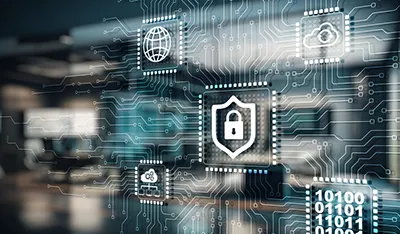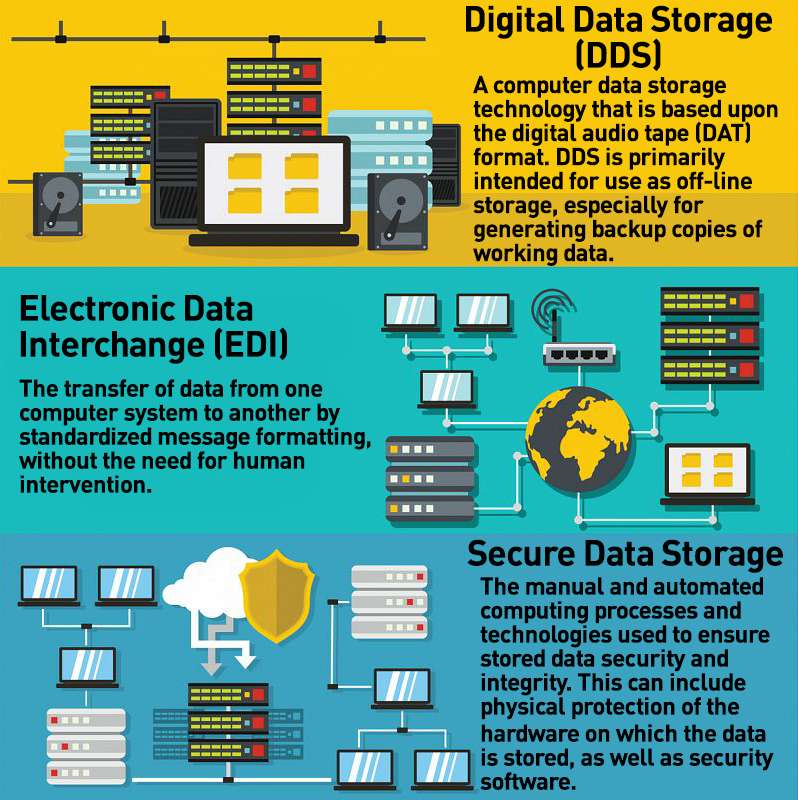Maximizing Cyber Security through Advanced Data Destruction Approaches
Maximizing Cyber Security through Advanced Data Destruction Approaches
Blog Article
The Important Nature of Data Destruction in Upholding Computer System Safety And Security Solutions and Protecting Versus Unauthorized Gain Access To
In an era where data violations and identification theft are increasingly common, the importance of effective data damage can not be overstated. Organizations should recognize that the failure to effectively get rid of sensitive information poses not only lawful and economic risks yet likewise a potential erosion of customer count on. Various techniques, from data wiping to physical devastation, act as crucial safeguards against unapproved gain access to. However, comprehending the implications of data devastation methods and conformity with regulations elevates crucial inquiries regarding the competence of present methods and their long-term stability when faced with evolving hazards.
Significance of Data Destruction
In a progressively electronic world, the significance of information devastation can not be overstated. As organizations generate vast amounts of sensitive details, the possible consequences of stopping working to appropriately manage and dispose of that information come to be significantly extreme. Information breaches, identity theft, and corporate espionage position considerable dangers, underscoring the need of effective data destruction practices.

Furthermore, as technology evolves, so too do the approaches by which destructive stars look for to exploit sensitive information. Organizations must stay proactive and attentive in their data damage methods to safeguard versus these developing risks. By prioritizing data destruction, firms not just shield their properties however also foster trust fund amongst stakeholders and customers, showing a commitment to accountable information administration and safety techniques.
Methods of Effective Data Destruction
To guarantee the full and irreparable damage of sensitive information, companies can employ a range of effective techniques tailored to their specific requirements. One of one of the most common methods is information cleaning, which entails using specialized software program to overwrite existing data several times, making recovery virtually difficult. This is particularly beneficial for solid-state drives and difficult drives, where typical deletion techniques are inadequate.
One more efficient technique is degaussing, which uses solid electromagnetic fields to interfere with the magnetic domain names on storage space media, making the information irretrievable. This technique is particularly suited for magnetic storage tools, such as tape drives and difficult disks.
Physical damage is likewise a feasible option, including the shredding, crushing, or incineration of storage devices. This technique guarantees that data can not be recuperated, making it suitable for organizations handling extremely sensitive info.

Compliance With Information Protection Laws
Organizations should not only focus on reliable information destruction techniques but additionally guarantee conformity with data security guidelines that regulate exactly how delicate information is handled and taken care of. Sticking to these guidelines is vital for keeping and securing personal data consumer count on. Regulations such as the General Data Protection Law (GDPR) in my blog the European Union and the Medical Insurance Portability and Responsibility Act (HIPAA) in the USA enforce rigorous guidelines on data management, that include needs for the protected disposal of delicate details.
To achieve compliance, organizations have to carry out extensive information devastation policies that straighten with these legal structures. This includes identifying information that calls for destruction, developing methods for safe and secure methodsâEUR" such as shredding physical media or utilizing software application that meets industry criteria for information wipingâEUR" and keeping comprehensive documents of devastation activities. Routine audits needs to be carried out to guarantee adherence to these plans and to identify any possible locations for enhancement.
Failure to abide by information protection guidelines can cause substantial legal implications, consisting of large penalties and damage to a company's track record. Incorporating conformity into information devastation practices is not only a lawful commitment but also an essential part of a robust details safety and security strategy.
Repercussions of Poor Information Handling
Poor information handling can lead to Extra resources extreme consequences that extend beyond instant operational setbacks. Organizations might encounter significant economic losses as a result of data breaches, which typically cause costly remediation initiatives, lawful charges, and regulative fines. These economic ramifications can stress resources and impede growth, eventually influencing an organization's profits.
Furthermore, inadequate information handling can badly harm an organization's credibility. Clients, companions, and stakeholders may shed depend on in an entity that falls short to protect delicate details, causing decreased client loyalty and possible loss of company opportunities. This disintegration of trust can take years to restore, if it can be restored in any way.
Furthermore, organizations might face legal implications occurring from non-compliance with data security laws. Such infractions might lead to examinations and fines, compounding the economic concern and additional tainting the company's photo.
In the world of cybersecurity, poor data administration practices can produce vulnerabilities that make systems a lot more susceptible to unapproved accessibility and cyberattacks. Inevitably, these repercussions underscore the crucial significance of implementing durable information taking care of procedures to secure delicate details and preserve business integrity.
Finest Practices for Secure Data Disposal


Firstly, information must be categorized according to its level of sensitivity. Sensitive information needs a lot more extensive disposal methods, such as shredding physical files and utilizing sophisticated software for digital data wiping. Using licensed information destruction services makes certain compliance with industry regulations and criteria.
Secondly, companies should carry out directory an information disposal plan that mandates regular audits. This policy needs to lay out the treatments for information retention and destruction, making certain that obsolete data is disposed of immediately and safely. Educating employees on these procedures is essential to cultivating a culture of protection understanding.
Finally, keeping in-depth documents of disposed data boosts responsibility and provides a clear audit trail. This documents ought to consist of the kind of information destroyed, the technique used, and the date of disposal.
Verdict
Taking on durable approaches such as information cleaning, degaussing, and physical destruction, together with conformity with guidelines like GDPR and HIPAA, is essential for safeguarding delicate info. Overlooking appropriate information disposal practices can lead to serious repercussions, consisting of data violations and lawful repercussions.
In an era where data violations and identity burglary are progressively common, the significance of reliable data destruction can not be overemphasized. data destruction. Data violations, identification theft, and business espionage pose substantial risks, highlighting the need of reliable data devastation techniques
Conformity with regulations such as GDPR and HIPAA mandates that organizations apply rigorous data protection actions, consisting of the protected devastation of information at the end of its lifecycle.
By focusing on data devastation, firms not only shield their assets yet also foster trust fund amongst stakeholders and clients, showing a commitment to liable data monitoring and safety practices.
Organizations should not just concentrate on reliable information devastation approaches but additionally make certain conformity with information protection laws that govern exactly how delicate details is handled and disposed of.
Report this page